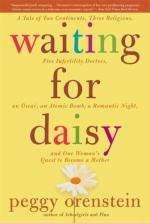|
This section contains 5,760 words (approx. 20 pages at 300 words per page) |

|
SOURCE: “‘Postmodern’ Thinking and the Status of the Religious,” in Religion & Literature, Vol. 22, Nos. 2 & 3, Summer-Autumn, 1990, pp. 47-61.
In the following excerpt, Kee examines how postmodern critics address the historical traditions that bear witness to the mystery of the divine-human relationship.
For many literary critics interested in the relationship between religion and literature, the theoretical developments of the last twenty-five years have appeared threatening. So-called “postmodern” critics have challenged the historical criticism which sought to establish the continuity of nineteenth- and twentieth-century literature with Christian humanism and, indeed, with the Western Christian tradition conceived as a whole.1 They have offered philosophical and political critiques of new-critical formalism, which found analogies between the paradoxes of literary language and those of religious language. Styles of criticism that were rooted in the assumptions of Arnoldian clerisism have even been criticized by some of the former high priests (see Bloom 60). The threat to...
|
This section contains 5,760 words (approx. 20 pages at 300 words per page) |

|


